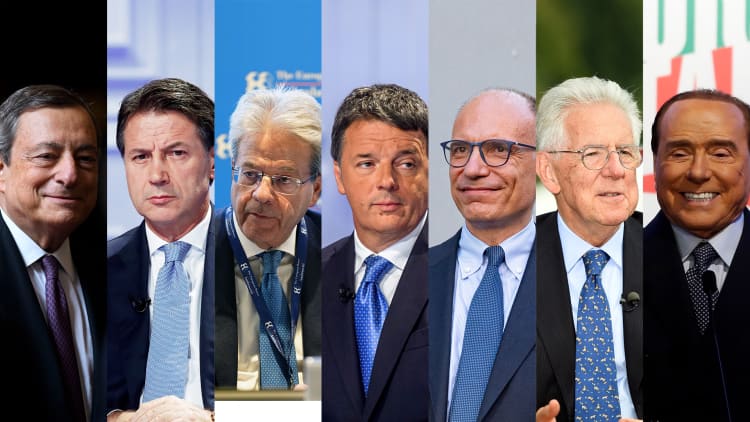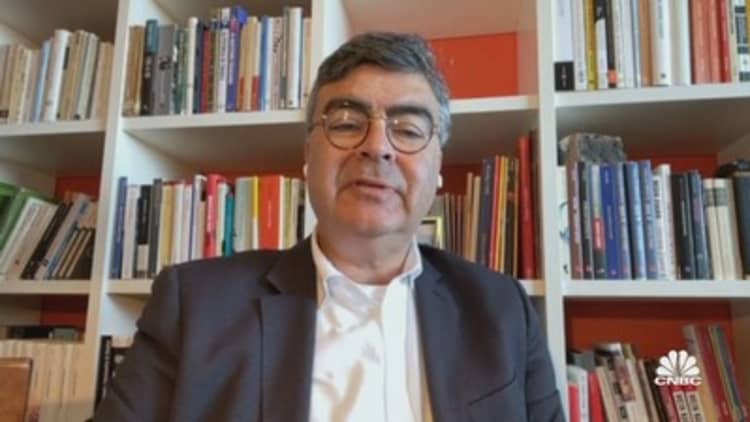
A volunteer prepares pink ballot papers at a polling station in Rome’
Andreas Solaro | Afp | Getty Images
Italians head to the polls Sunday in a nationwide vote that could return the country’s first female prime minister and the first government led by the far-right since the end of World War II.
Giorgia Meloni’s Fratelli d’Italia (Brothers of Italy) party was created in 2012, but has its roots in Italy’s 20th century neo-fascist movement that emerged after the death of fascist leader Benito Mussolini in 1945.
After winning 4% of the vote in 2018’s election, it has used its position in opposition to springboard into the mainstream. The Brothers of Italy party is expected to gain the largest share of the vote for a single party on Sunday. Polls prior to a blackout on Sept. 9 showed that it’s been getting almost 25% of the vote, far ahead of its nearest right-wing ally Lega.
Forming a coalition with Lega, under Matteo Salvini, Silvio Berlusconi’s Forza Italia and a more minor coalition partner, Noi Moderati, it looks likely the right-wing alliance will win power in Rome. Italy’s complicated first-past-the-post system rewards coalitions and the center-left Democratic Party has failed to build a large enough alliance despite polling at 21% as a single party.
Polls opened at 7 a.m. local time and will close at 11 p.m. An exit poll is due as the ballot closes, but early projections may not come until Monday morning. Reaching political consensus and cementing any coalition could then take weeks and a new government may only come to power in October.
Incumbent Mario Draghi, a much-loved technocrat who was forced out by political infighting in July, agreed to stay on as caretaker. The snap elections on Sunday come six months before they were due.

Brothers of Italy has chimed with sections of the public who are concerned about immigration (Italy is the destination for many migrant boats crossing the Mediterranean), the country’s relationship with the EU and the economy.
In terms of policy, Brothers of Italy has often been described as “neo-fascist” or “post-fascist,” its policies echoing the nationalist, nativist and anti-immigration stance of Italy’s fascist era. For her part, however, Meloni claims to have rid the party of fascist elements, saying in the summer that Italy’s right-wing had “handed fascism over to history for decades now.”
Still, its policies are socially conservative to say the least, with the party opposing gay marriage and promoting traditional “family values,” with Meloni saying in 2019 that her mission was to defend “God, homeland and family.”
When it comes to Europe, Fratelli d’Italia has reversed its opposition to the euro, but champions reform of the EU in order to make it less bureaucratic and less influential on domestic policy. On an economic level, it has deferred to the center-right coalition’s position that the next government should cut sales taxes on certain goods to alleviate the cost-of-living crisis, and has said Italy should renegotiate its Covid-19 recovery funds with the EU.
Fratelli d’Italia has been pro-NATO and pro-Ukraine and supports sanctions against Russia, unlike Lega which is ambivalent about those measures. Meloni has been described as something of a political chameleon by some, with analysts noting changes in her political position over time.

